Prasaranyadi Kashayam is a balanced combination of Vata-hara and nourishing drugs, successfully used in degenerative diseases of bones and joints. It is mentioned in the context of Vatahara Kashaya in Sahasrayoga. It restores stability and integrity of joints, especially the shoulder joint.
‘Kashaya’ or herbal decoctions harness the healing properties of herbs and roots in a mild and easily absorbable water base. The tablet modification allows easy transportation and administration, without compromising on its therapeutic benefits.
Features & Benefits
- Prasaranyadi Kashayam is a wholesome combination of anti-rheumatic and nourishing herbal drugs.
- It pacifies aggravated Vata while strengthening neurological and locomotor function.
- The combination of Prasaranyadi Kashayam has specific therapeutic efficacy in relieving inflammatory changes in the shoulder joint.
- Balaand Masha render the formula uniquely nourishing with local action. This property is beneficial in managing osteoarthritis and similar degenerative conditions.
- The presence of Rasona helps in drawing our deep tissue inflammation and clearing the path for ideal nourishment and cellular metabolism.
- Prasaranyadi Kashayam is widely used in managing ‘frozen shoulder’ resulting from trauma or hyperglycemia.
- The individual partaking the medicine is advised to take ‘Ksheerodana’ or rice prepared in milk as a meal, for best results. This supplements the nourishing action of the decoction.
Dosage and Instructions
Adult: 15-20 ml of Prasaranyadi Kashayam mixed with 45-60 ml of boiled and cooled water, twice daily on empty stomach.
Child: 10-15 ml of Prasaranyadi Kashayam mixed with 30-45 ml of boiled and cooled water, twice daily on empty stomach.
Suitable for all ages.
Key Ingredients
Prasarani (Paederia Foetida)
The main use of the plant is for arthritis and rheumatic disorders. The leaves, in the form of a poultice, are applied to the abdomen to relieve distension due to flatulence and in herpes infections. The roots are used as an emetic and the juice extracted from the roots is given in cases of inflammation of the spleen and for pains in the chest and liver. The fruits are used to prevent toothache. The whole plant shows tonic, astringent, and antiphlogistic actions and has been used in tenesmus.
Rasna(Alpinia Galanja)
Rasnais Ayurvedic Medicinal which is a rhizome grown in most of Southeast Asia and is used in cooking and home made remedies. Rasnaplant is used in many Ayurvedic medicines in India, Tibet, Africa to help with inflammation, bronchitis, asthma, cough, indigestion, piles, joint pains, obesity, diabetes. The paste of the leaf is also applied externally to reduce swelling.
Bala (Sida cordifolia)
The Ayurvedic system of medicine considers Balaor Sida cordifolia as a tonic, astringent, emollient, and aphrodisiac. The drug also forms a chief ingredient of several important formulations and preparations in Ayurveda. Internally, Balais believed to be a very effective nervine tonic and Rasayana for all kinds of Vata disorders.
Ardraka (Zingiber Officinalae)
Also called as Vishwa Bheshaja, it has a large number of pharmacological activities. Among those, neuroprotective activity and activity against colon cancer have facilitated the extent of further research for finding out less toxic and more potent drugs for the better treatment of related diseases. Ginger is extensively used around the world in foods as a spice. Ginger has been used for cold-induced disease, nausea, asthma, cough, colic, heart palpitation, swellings, dyspepsia, loss of appetite, dyspnoea, vomiting, gastritis, thirst, post partum disorders, and rheumatism. It is carminative antipyretic and is used to treat bronchitis, gastrointestinal disorders, and piles.
Lasuna (Allium sativum)
Garlic is a spice known as “Rasona” in Ayurveda. It is a popular ingredient in cooking due to its strong smell and medicinal properties. It is rich in sulfur compounds that attribute to its various health benefits. Garlic helps to manage weight by improving the metabolism of the body. It is good for heart health as it maintains a balance between good cholesterol and bad cholesterol levels due to its lipid-lowering property. It prevents plaque formation and helps to widen the blood vessels thereby managing blood pressure due to its antioxidant property. Garlic also helps to boost immunity and increases the ability of the body to fight against various infections.
Masha (Vigna Mungo)
Urad dal is also known as Black gram in English and Masha in Ayurveda. It is used for various medicinal purposes in the Ayurvedic system of medicine. It is a rich source of nutrition and helps boost energy. Urad dal is rich in fibers which help improves digestion. It may also help manage constipation by promoting bowel movements due to its laxative property. Regular consumption of Urad dal improves sexual desire in men which in turn helps manage sexual dysfunction due to its aphrodisiac property. Urad dal is also considered to be good for diabetes as it improves insulin secretion and sensitivity.
Specialty: 100% Natural. Purely herbal. Vegetarian.

















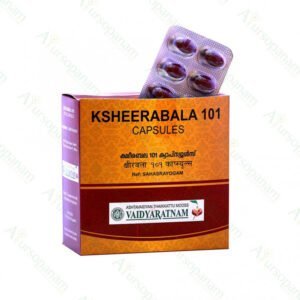


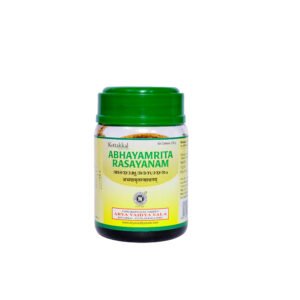













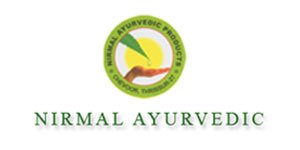




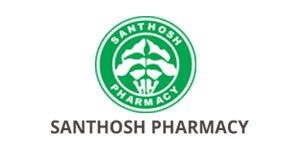

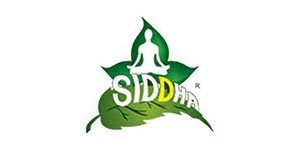











Ratings & Customer Reviews
Reviews
There are no reviews yet.